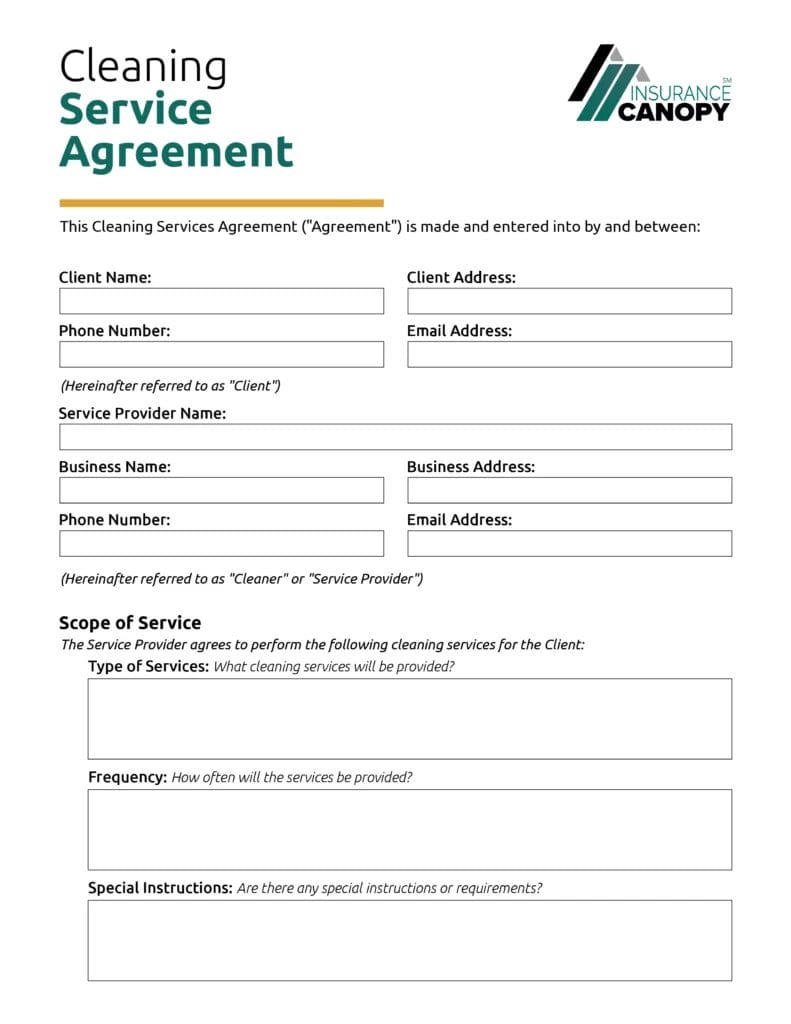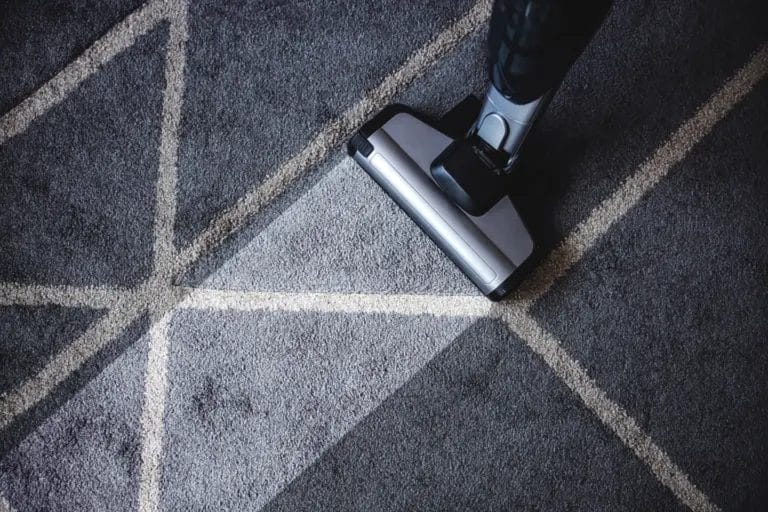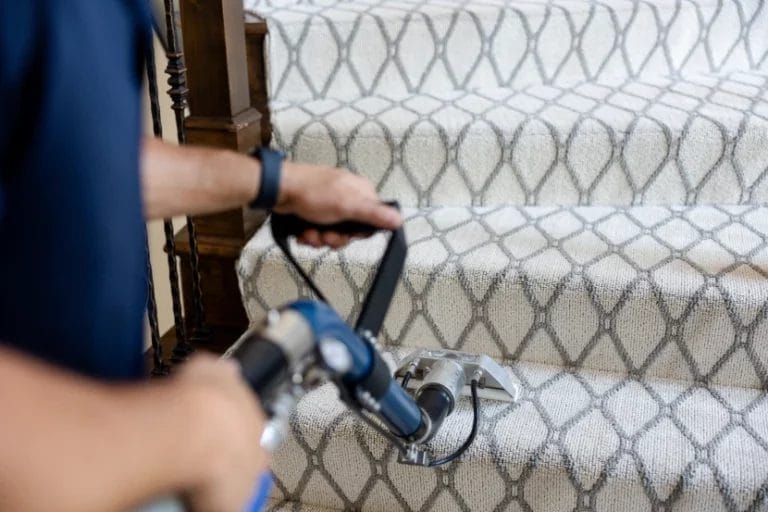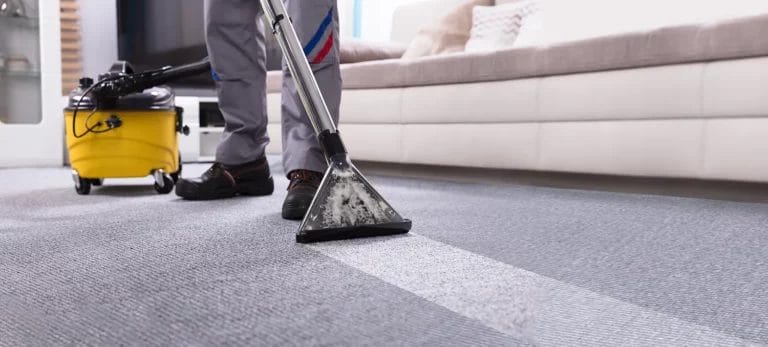You’ve put in the time, invested in the right equipment, and are ready to grow your cleaning business — but what if the clients don’t come? What if the business doesn’t take off?
Finding cleaning contracts that build a steady income can feel daunting, but with the right steps, those worries don’t have to hold you back! We’ll walk you through five essential steps to land the right clients and build a strong, reliable foundation for your cleaning business.
What is a Commercial Cleaning Contract?
A cleaning contract is a written agreement between your cleaning business and a client, spelling out what’s included in the cleaning service, how often it’ll happen, and how much it will cost. Think of it like the foundation of a good working relationship — it helps everyone stay on the same page.
Landing steady clients can feel like a big leap, especially when you’ve just started your cleaning business. Understanding the different types of contracts used for various services and specialties can help you learn how to get commercial cleaning contracts more quickly.
Additional Types of Cleaning Contracts
When it comes to finding cleaning contracts, one size does not fit all! Here’s a look at the most common types of cleaning contracts:
- Residential: Focuses on keeping homes fresh and tidy, covering essentials like vacuuming, dusting, bathrooms, and kitchens.
- Commercial: Ideal for offices and retail spaces, this often includes floor care, restrooms, trash removal, and high-touch surface cleaning, often outside of regular hours.
- Specialized: Covers unique needs, like medical or eco-friendly cleaning, requiring specific skills or certifications. They often come with higher rates for expertise.
- Post-construction: Tackles dust, debris, and leftover materials to make spaces move-in ready after a renovation.
- Government and institutional: For schools, hospitals, and public offices, these contracts demand strict standards and sometimes require background checks, offering stable, ongoing work and strong client relationships.
Pro tip: No matter what type of cleaning contract you want to land, chances are having cleaning business insurance in place will be a requirement. See what coverage you’ll need to get work as far as:
How to Get Commercial Cleaning Contracts
Here are some essential steps on how to get commercial cleaning contracts to help you start small, connect with potential clients, and grow at a pace that works for you.
1. Decide What Type of Commercial Contracts You Want
Before you start finding cleaning contracts, get clear on your ideal clients and spaces. Think about the type and level of cleaning needed — whether it’s an office, warehouse, or retail space — and match that with your strengths.
Be honest about your skills and areas for improvement so you can focus on services that suit your target market. A few things to get sorted before you dive in:
- Requirements: Make sure you have the necessary licenses or certifications for the type of contracts you want to land.
- Services: Decide what type of commercial cleaning contract services you are equipped for and able to fulfill.
- Pricing: Price your cleaning services based on client needs, the facility’s size, frequency of cleaning, and any special tasks.
2. Find Commercial Cleaning Contracts and Clients
How to get commercial cleaning contracts could be as easy as reaching out to the network of people you already know to find opportunities. For example, asking your clients for referrals is instant word-of-mouth marketing.
Maybe your neighbor owns a business and is looking for someone to come clean the office each night. Maybe your friend’s friend owns an apartment complex that needs the carpets cleaned every six months. See what business you can get from your current connections.
Platforms like Upwork, Thumbtack and Angi are ideal for connecting with local businesses to find cleaning contracts. Claiming your free profiles on Google Business pages and Yelp puts your services in front of people who are actively looking for local commercial cleaning service providers.
Also, there are official sites where you can find Request for Proposals (RFP) cleaning contracts to bid on for government agencies, schools, hospitals, and so on:
- Government contracts: Federal, state, and local government sites like SAM.gov
- Schools, hospitals, and universities: Institutions often list janitorial, cleaning, and sanitation RFP contract opportunities (as well as how to apply) on their websites
- Corporate cleaning contracts: Sites like BidNet, GovWin, or RFP360 list commercial cleaning contracts available for bidding
Another way to find clients and get commercial cleaning contracts is to market your cleaning company on social media. Connect with potential clients in your area, post engaging content, share your services and pricing, and more, on platforms like LinkedIn, Facebook, and Instagram.
You can even sponsor and target social media posts to reach certain professional roles, industries, and locations — helping you find more commercial cleaning contracts.
3. Customize Your Proposals
A personalized proposal is key to winning cleaning contracts, and this starts by understanding your potential client’s specific needs. Make sure your proposals are clear, professional, and easy to understand.
Whether it’s a commercial office or a post-construction site, make sure your proposal addresses their unique requirements. Highlight the services that matter most to them — like after-hours availability for commercial cleaning, move-out cleaning services, or special treatments for delicate surfaces in high-end spaces.
Be clear on pricing and ensure that it reflects the scope of work. Break it down into easy-to-understand terms so your client knows exactly what they’re paying for.
Don’t forget to showcase your strengths, like consistent quality, punctuality, or eco-friendly products, and back them up with client reviews or before-and-after photos. Customizing each proposal lets clients know you’re not just another cleaner looking for ways to get commercial cleaning contracts — you’re the right fit for their needs.
Pro tip: Streamline your ability to land commercial cleaning jobs by working with a legal expert to draft a proposal template that is professional and geared to protect your business — then customize the template when you apply for contracts.
4. Follow Up
After submitting proposals or bidding on commercial cleaning contracts, follow up to demonstrate your interest and professionalism. Keep communication open and responsive, and address any feedback or questions promptly.
Following up shows your dedication and commitment to providing excellent service, which can help you secure long-term contracts. Plus, it gives you a chance to clarify any details and strengthen your connection with the client.
When bidding to get cleaning contracts, pay attention to the process and timeline, and follow up at the most appropriate time. Some government contract processes might take months, for example, whereas landing work cleaning a local retail business could happen within days.
5. Build Long-Term Relationships
Excellent service, reliability, and open communication can help keep your clients coming back, leading to repeat business and referrals. Also, satisfied clients are more likely to recommend your services to others, making word-of-mouth a powerful tool for growing your business.
What to Include (or Look for) in Commercial Cleaning Contracts
A clear cleaning contract helps both you and your client understand their roles and expectations. It can prevent misunderstandings as well as any legal fallout and broken relationships that can ensue — it protects both parties in this way. In some cases, you’ll need to provide a contract, whereas some commercial clients will come to the table with their own.
Here’s a quick look at the key sections your cleaning contracts should cover:
- Scope of service: What tasks are included in the cleaning? Does it cover vacuuming, dusting, mopping, bathroom sanitizing, kitchen cleaning, and window washing?
- Schedule and frequency: How often will cleaning take place? Daily, weekly, or monthly? Are certain tasks scheduled on specific days or times?
- Cleaning supplies and equipment: Who will provide the cleaning supplies and equipment? Does the client have product preferences due to allergies or sensitivities?
- Quality standards: What quality standards need to be met? Is there a checklist or inspection process?
- Special instructions: Are there specific instructions or methods for certain areas or items the client wants followed?
- Pricing and payment terms: How much will cleaning cost? What’s the payment schedule — weekly, bi-weekly, or monthly or terms (e.g., net 15 or net 30 from invoice date), and what payment methods are acceptable?
- Duration and termination: How long will the contract last, and when does it start and end?
- Termination and renewals: For both you and the client, what are the renewal options? What’s the process for terminating the contract, how much notice is required, and are there any conditions that allow for immediate termination?
- Insurance and liability: What are your cleaning business’ insurance requirements? Who’s responsible if damages or accidents occur during cleaning? Does a Certificate of Insurance need to be provided? Is the client asking to be added to the policy as an Additional Insured?
Free Download: Commercial Cleaning Contract Template
Here’s a straightforward template to help you create a professional, reliable agreement every time. Feel free to download it and use the template as a guide to create cleaning contracts for your business.
Note: This template is a general guide. You may need to adjust it to fit your specific business needs, and you should have it reviewed by a legal professional who understands the requirements in your area.
More Places to Source Cleaning Contracts
Landing cleaning clients comes down to the types of jobs you want and your ability to market your services. In addition to the ideas listed above for finding commercial cleaning jobs, here are some more places to source contracts:
- Online job boards and freelance platforms: Websites like Indeed, Glassdoor, and Upwork often post janitorial and commercial cleaning jobs. Set up alerts to stay updated on new opportunities in your area.
- Networking events and trade shows: Attending local events connects you with clients and other professionals. Hand out business cards and promote your services.
- Social media platforms: Use Facebook, Instagram, TikTok, and LinkedIn to market your cleaning services. Post engaging content and join local groups to attract clients.
- Government and institutional websites: Check government and institutional (hospitals, schools, etc.) websites for bidding opportunities on cleaning contracts.
- Property management companies: Commercial property managers often need cleaning services for corporate offices, warehouses, apartment complexes, and more. Reach out directly or visit their websites for potential contract opportunities.
- Real estate agencies: Real estate agents regularly need cleaning for homes being sold or rented. Offer your services for pre-sale or move-in cleaning.
- Local community boards and online forums: Websites like Nextdoor or local Facebook groups are great for finding cleaning leads. Participate in the community and offer help when needed.
Common Questions About How to Get Commercial Cleaning Contracts
What happens if a client wants to terminate the contract early?
If a client wants to end a cleaning contract before it’s due, the contract’s terms come into play. Some contracts have rules for early termination, like giving 30- or 90-day notice or paying out part of the remaining contract.
How can I improve my chances of winning cleaning contracts against competitors?
Highlight what sets you apart! Showcase your experience, reliability, and any unique services you offer. Personalize your proposals to address each client’s specific needs and emphasize the value you bring. Clear communication, competitive pricing, and strong references can also make a big difference.
How often should I follow up with potential clients after submitting a proposal?
A good rule of thumb is to follow up a week after sending your proposal or after the date when a formal bidding period is over. If you don’t get a response, check in again after another week or two. Keep it friendly and professional — show persistence without being pushy.

Secure Your Commercial Cleaning Contracts with the Right Insurance!
Did you know that 30% of our insured clients say having cleaning insurance helped them attract more business?
When potential clients see that you’re insured, it gives them confidence in your professionalism and can make them choose you over competitors. Plus, considering all the time and effort you’ve invested in your cleaning business, it’s smart to protect that hard work. So, are you ready to protect your business? Get your policy today!






